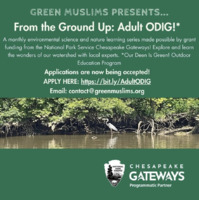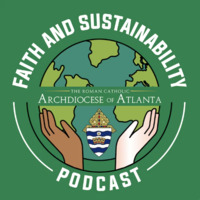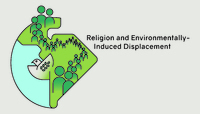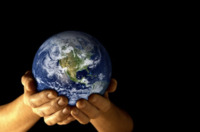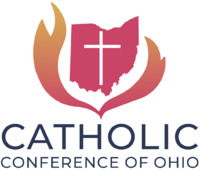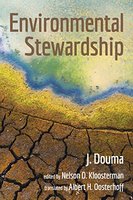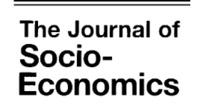Search
153 items
-
MLK Day 2024
"ServeOhio Funds 19 Statewide Service Projects Taking Place in celebration of MLK Day
These grants support more than 1,300 volunteers engaging in local community service projects across fifteen Ohio cities
ServeOhio, the Governor-appointed commission on service and volunteerism, announces grant awards to support 19 local Martin Luther King Jr. Day of Service projects throughout January totaling more than $25,000. Much like Dr. King’s legacy, these grants will help nonprofits across the state improve their communities through service and volunteer activities. The grants will fund service projects in fifteen Ohio cities led by more than 1,300 volunteers.
Each project commits to bringing volunteers together to create or improve community assets or infrastructure and supports local community engagement and impact. Additionally, every project includes an education component based on Dr. King’s message of peace, unity, and service to create long-term, sustainable change.
ServeOhio awards these grants with support from the American Electric Power Foundation. Each grant totals between $250 - $1,500." -
From the Ground Up: An Adult Outdoor Education Program
AKA Our Deen is Green! for Adults"We are happy to announce that applications are now being accepted for From the Ground Up: An Adult Outdoor Education Program (aka Our Deen is Green! for adults). This special program, funded by a grant from the National Park Service Chesapeake Gateways Office, will begin after Ramadan, in late April 2024, and continue into spring of 2025. It is a unique opportunity to become immersed in the various facets of ecology, environmental science, sustainability and stewardship. It will include monthly classes, mostly in-person and outdoors in parks and wildlife sanctuaries in DC, Maryland, and Northern Virginia, focused on specific aspects of and issues pertaining to our local region, the Chesapeake Bay Watershed.
Classes will be led by local subject matter experts and include a variety of topics, including local plants and animals, the interconnectedness of our watershed, the challenges it’s facing, and what we can do to help. Specific classes will include:
· An introduction to the Chesapeake Bay Watershed
· Local herps: reptiles and amphibians
· Monitoring stream health with benthic macroinvertebrates
· Stream restoration and invasive plant removal
· The importance of native plants and pollinator gardens
· Watershed education through an interfaith lens
· Native trees
· Soil health
· Environmental justice
· Local birds and “bugs”
· Solar power and clean energy
· Sustainable living
· Water-quality monitoring
· And more!
We are looking for 10-15 strongly committed local residents who are interested in learning about our local watershed, its needs, and what they can do to help it. Participants will be encouraged to create a long-term project or plan of action describing something they will do to support the watershed and/or encourage their families or communities to pay more attention to environmental issues.
Program participants must be able to commit to the majority of the monthly classes. All in-person classes will take place on weekends and last 2 to 4 hours. (We will do our best to help provide transportation if necessary.)
This entire program is being offered free of charge thanks to a National Park Service Chesapeake Gateways grant. The National Park Service Chesapeake Gateways Office (NPS Chesapeake Gateways) offers competitive grant opportunities to advance the Chesapeake Bay Initiative Act of 1998 within the full 41-million-acre Chesapeake Bay watershed. Chesapeake Gateways grants bring out familiar, untold, under-appreciated, or yet to be uncovered narratives and promote resilient communities & landscapes through tourism, sustainability, conservation & local economies throughout the Chesapeake Bay watershed.
The program begins after Ramadan, with the introductory class set for April 21st! Applications are due by March 8th. Access the application form below. Please reach out to us at contact@greenmuslims.org with any questions." -
Critique of Religious Patriarchy
"This supplement is about transcending religious patriarchy in order to foster integral human development and a healthy mutuality between humans and the human habitat. Some meditations are proposed on the mysteries of the creation, the incarnation, and the redemption. They explore the Christian understanding that all men and women are consubstantial in one and the same human nature, and are consubstantial with Jesus Christ as to his humanity. The meditations are based on a layman's reading of the Sacred Bible, the Catechism of the Catholic Church, and the Theology of the Body as they pertain to the consubstantial complementarity of man and woman, which transcends the patriarchal binary of mutually exclusive male-female opposites. This understanding of the "complementarity in consubstantial unity" of man and woman applies to all the sacraments, sheds light on the great nuptial mystery of Christ and the Church, and would seem to support the ordination of women to the ministerial priesthood and the episcopate. The meditations are preceded by recent news on patriarchy in religion, society, and human ecology, and are followed by articles and research notes, a summary of points for discernment on the ordination of women, an annotated timeline of religious patriarchy in the Judeo-Christian tradition, and links to relevant literature, substantive research, and the synodal process of discernment currently underway in the Catholic Church." -
Towards a Psychology of Religion and the Environment
This article discusses how religion is a powerful tool that can be utilized in promoting environmentalism. While religious text can be utilized both for and against environmentalism, religion more often than not helps to promote protection of the environment according to their findings. -
Faith and Sustainability Podcast
The Faith and Sustainability podcast is a project created by the Archdiocese of Atlanta as part of their Laudato Si Initiative. Host Leonard Robinson is joined every week by influential members of different faith communities and environmental experts, where they discuss a wide range of topics like environmental justice, how to recycle, and climate change. The Faith and Sustainability podcast explores how faith and sustainability connect, and finding out how to better care for our planet. -
Religion and Environmentally-Induced Displacement
The goal of this project is to enhance people's understanding of the religious response to environmental displacement in Latin America. This database includes a list of past workshops and public events related to the subject as well as relevant documentaries on the topic. -
Threat of Global Warming/Climate Change - 2006 Statement of Conscience
This resource contains the climate statement of the Unitarian Universalist Association.
"Earth is our home. We are part of this world and its destiny is our own. Life on this planet will be gravely affected unless we embrace new practices, ethics, and values to guide our lives on a warming planet. As Unitarian Universalists, how can our faith inform our actions to remedy and mitigate global warming/climate change? We declare by this Statement of Conscience that we will not acquiesce to the ongoing degradation and destruction of life that human actions are leaving to our children and grandchildren. We as Unitarian Universalists are called to join with others to halt practices that fuel global warming/climate change, to instigate sustainable alternatives, and to mitigate the impending effects of global warming/climate change with just and ethical responses. As a people of faith, we commit to a renewed reverence for life and respect for the interdependent web of all existence." -
How Religion Intersects With Americans' View on the Environment
Through this study, they intended to obtain information about how religious Americans view climate change. This article explains the results of a survey. It shows how some religious Americans express little concern about climate change, and carry the belief that “there are much bigger problems in the world, that God is in control of the climate.” Additionally, some say that “they do not believe the climate is actually changing.” This survey also sheds light on other concerns religious Americans carry, such as fear surrounding the consequences of environmental regulations (fewer jobs, increased energy prices, and loss of individual freedoms).
Additionally, the survey extends to other religious affiliations as well as the religiously unaffiliated population. -
Turning Around Our Relationship with Earth is a Teshuvah Project
The author recounts an unsettling encounter with a utility worker who downplayed the environmental harm of her gas leak. From here, she explains the true negative impacts of methane emissions on both people and the climate, and encourages us to act in a way that "turns around our relationship with Earth". She connects this with the Jewish tradition of Teshuvah, the time in between Rosh Hashanah and Yom Kuppur meant for repentance. -
Care for Creation - Catholic Conference of Ohio
"The Catholic Bishops of Ohio invite you to study the issues related to the stewardship of God’s creation. Care for the environment is a fundamental principle within Catholic Social Teaching. We applaud efforts already underway in many Catholic homes and institutions that help conserve energy, protect the environment, and advance a greater understanding of faithful stewardship. We hope that Catholic families and institutions around the state will continue in such efforts."
This resource includes a statement calling to care for God's creation and contains information and links to several other resources related to religion and environmentalism. -
Al-Mizan: Covenant for the Earth
"The Covenant presents an Islamic outlook on the environment in a bid to strengthen local, regional, and international actions to combat the triple planetary crises defined by the United Nations as climate change, biodiversity loss and pollution. It is a global endeavour to engage Muslims from all levels of society in the development and adoption of this call...
Al-Mizan - A Covenant for the Earth is a restatement of the principles governing the protection of nature in a form that meets current challenges. It examines the ethics behind the social patterning of human existence and enquires into how they could be brought to life today working in harmony with the heartbeat of the natural world." -
A Walk with Sustainability…and the Bolivian Llamas
"In this picture, I am working alongside two rural Bolivian community members (and a llama), collaborating on the design of a water system. The community had no running water, phone service only on hills, cut plastic liter bottles in half for gutters, and still gave me soups and meals as a welcoming and thankfulness. Their kindness, harmony with the land around them, and joy radiated, deeply resonating with my idea of how to live a sustainable, happy life. Sustainability is not buying a reusable water bottle…every 3 months because a new, better, more cool version is here. It is living in gratitude and simplicity with the people and nature around you." Taken by Megan Oleksik. Submitted to the RESTORExchange Sustainability Contest. -
Voting and Our Common Home: Reflections from the Catholic Tradition
This resource shares information and resources related to the importance of voting for environmental issues on the basis of Catholic religious beliefs. This document is available in both English and Spanish and raises multiple different issues and considerations connecting religion, environmental issues, and voting. -
A Jewish Response to Environmental Stewardship: LEEDing the Way
The article highlights Temple Israel of Minneapolis's achievement of LEED Gold Certification, reflecting their commitment to sustainability through a multi-year renovation project. This accomplishment aligns with their Jewish values, particularly the principle of Pikuach Nefesh, which emphasizes protecting life and the environment. The synagogue's efforts extend beyond their building to include community-wide initiatives such as climate action resource fairs and partnerships with environmental organizations. Their ongoing commitment to sustainability is showcased through continuous improvements and active participation in broader climate justice movements. -
Earth Dialogue Tour
Two faith-based environmental leaders, Amy Woolam Echeverria and Gopal D. Patel, are travelling across the U.S.A to visit and speak to Catholic congregations, campuses, and other communities. They discuss faith-driven environmentalism and the responsibility to help communities affected by environmental damage. -
Resources for Preaching & Speaking on Climate Change
The resource gives information for preachers and other religious figures to use when talking about climate change. It starts by giving reasons for preaching about climate change and why it is important for us now and in the future. It also gives facts from scientists on the climate which mentions the aspects of climate change such as the causes and effects on the environment, and what humans can do to help. The article then gives biblical themes related to climate change and also gives advice for religious leaders to overcome possible barriers when preaching. -
Engaged Organizations: Global Oneness Project
The Global Oneness Project was founded in 2006 as an initiative of Kalliopeia Foundation, and is focused on education aimed a planting seeds of empathy, resilience, and a sacred relationship to our planet. They are passionate about the power of stories and offer a rich library of multimedia stories comprised of award-winning films, photo essays, and essays as well as companion curriculum and discussion guides focused on world culture, social justice and sustainability. -
What Karl Marx has to say about today's environmental problems
Ted Benton, a Professor of Sociology at the University of Essex, writes about how Marx's theories can be applied to modern environmental issues such as climate change. He talks about how Marx's ideas about capitalism relate to current exploitation of nature, and specifically about soil degradation which was an issue during the 1860s when Marx was alive. He also includes problematic parts of Marx's attitudes towards nature, such as his praise of increased productivity of land that may have inspired Stalin. -
Environmental Stewardship
This book goes into detail about how the Christian religion goes about environmental stewardship. They look at how bible passages talk about preserving the Earth and the morals we should have surrounding it. It dives deep into how science interacts with human interaction with the Earth and the damage that we have done to Earth, as well as what we should do to correct ourselves. -
How Buddhist monks in Ladakh are fighting climate change
Buddhists Monks in the Himalayas are taking a stand to climate change. On Earth Day 2018, thousands of people came together in the village of Yerat to plant trees. The region is rapidly losing glaciers, causing a shortage in water supply to the villages in the area who rely on snowmelt for water. The volunteers were inspired to participate due to their devotion to His Holiness Kyabgön Chetsang Rinpoche and his vision for "a more verdant and organic Ladakh." -
Five Years After Speaking Out on Climate Change, Pope Francis Sounds an Urgent Alarm
This article covers Pope Francis's reaction to the world governments responses to climate change. The Pope writes to unite people through religion in an effort to bring awareness to the movement. The article details how the church is divesting in fossil fuel companies. The article also focuses on the political divide and how it affects people's views on the climate crisis. -
Overpopulation and the Lifeboat Metaphor: A Critique from an African Worldview
Many scientists have warned that the earth is nearing overpopulation or has already reached its carrying capacity. Garret Hardin proposed the lifeboat ethics metaphor to address this crisis and proper resource distributions. Okyere-Manu comments that this metaphor does not take into account the African political and cultural worldview. Hardin's metaphor is also reliant on inequality which disproportionately affects vulnerable communities. -
Religion and animal welfare: Evidence from voting data
This article, written by Julio Videras, works to analyze the factors that contributed to a 2002 ban on farming practices in Florida that were deemed cruel to pigs. Not only is religion taken into account (specifically Catholicism and Evangelical denominations), but political and socioeconomic factors are also considered. Videras argues that political affiliation and socioeconomic factors play more of a role in people's opinion of the ban than religious factors do. -
FORUM2020: Science, Spirituality, the Climate Emergency and Our Future
Presented by The Temple of Understanding, this two-day event features over forty international speakers including Indigenous leaders, religious and spiritual visionaries, and youth environmental activists. The Forum will consist of three 30-minute panels addressing climate emergencies and action plans. The first panel is the "State of the Earth Panel" and addresses climate from different perspectives. The second is "Women in Leadership on the Environment Panel" and the third is "Intergenerational Wisdom & Our Future Panel" where action-based programs will be discussed. "Over forty international speakers will be offering their wisdom and perspectives through keynote addresses, diverse panels, inspiring prayers and sacred music at FORUM2020 online" -
15 Green Religious Leaders
This article contains a list of spiritual leaders that openly advocate for the protection of the environment. The 15 names are listed then followed by a description of their faith and views on the natural world. The article portrays that throughout different religions, many leaders are starting to encourage a sort of "eco-gospel."


